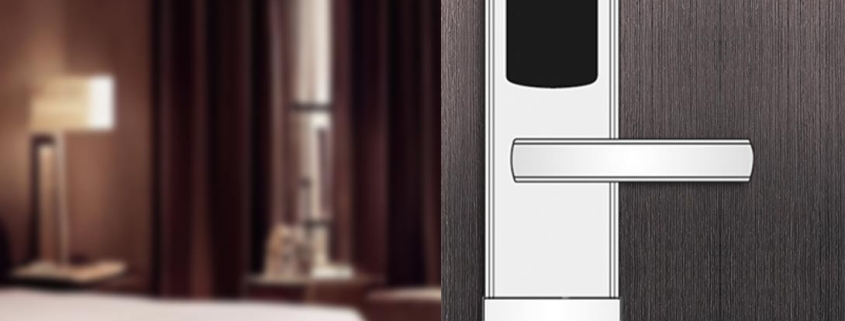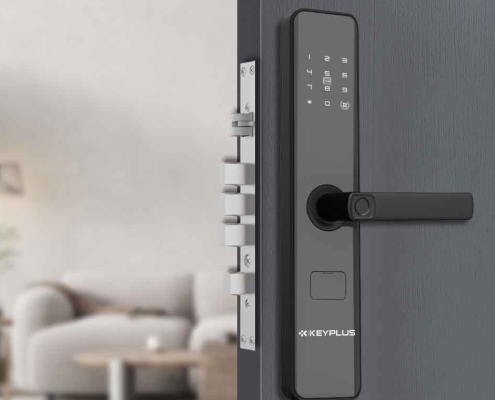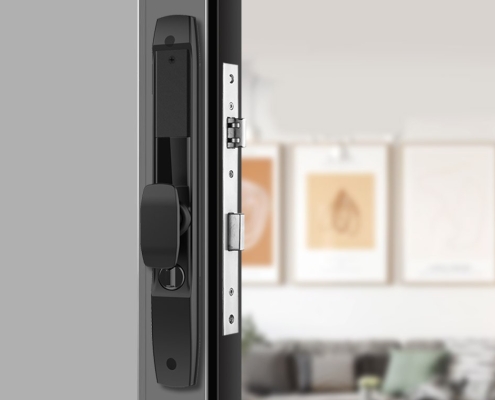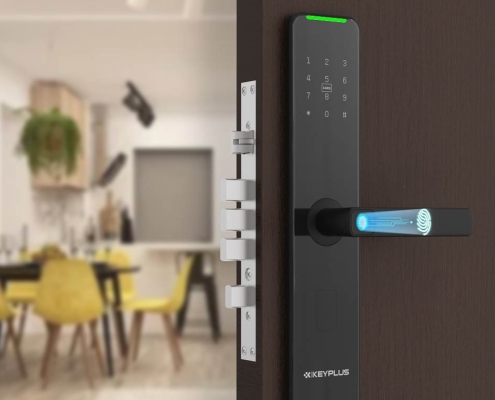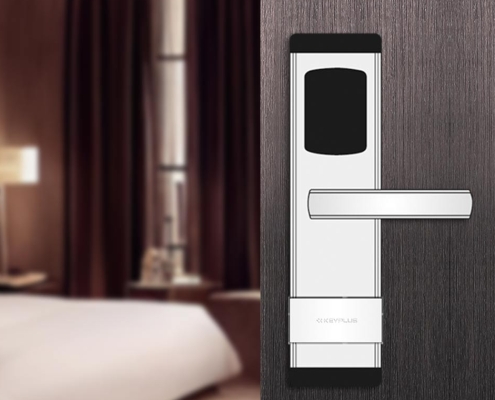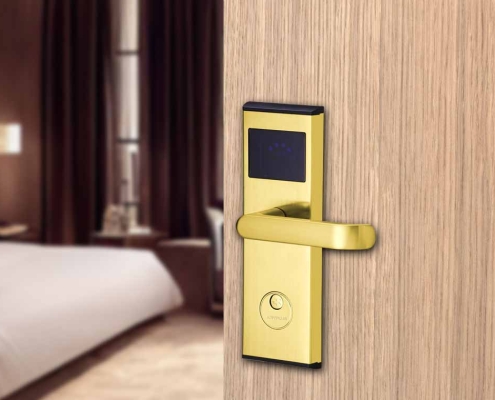How Do Electronic Hotel Locks Work? A Complete Guide
When you check into a hotel, you probably don’t think much about how your room’s electronic lock functions—until it doesn’t. You swipe your keycard, hear a beep, and the door unlocks. But have you ever wondered what’s happening behind the scenes?
Electronic hotel locks have replaced traditional keys in most modern hotels, offering better security, convenience, and management control. But how exactly do they work?
In this article, we’ll break down the technology behind electronic hotel locks, explain the different types, and discuss their pros and cons. Whether you’re a curious traveler, a hotel manager, or just someone who loves tech, you’ll learn everything you need to know.
1. The Basics: How Electronic Hotel Locks Function
Unlike traditional locks that rely on physical keys, electronic locks use digital credentials—such as keycards, mobile apps, or even biometrics—to grant access. Here’s a simplified breakdown of how they work:
- Authentication – When you present your keycard or smartphone, the lock reads the encrypted data.
- Verification – The lock checks if the credential matches an authorized code.
- Activation – If verified, an electric motor or solenoid releases the bolt, allowing the door to open.
Most electronic locks are battery-powered (usually AA or lithium batteries) and can operate independently of the hotel’s main power supply.
2. Types of Electronic Hotel Locks
Not all electronic locks are the same. Hotels choose different systems based on security needs, budget, and guest convenience. Here are the most common types:
A. Magnetic Stripe Keycard Locks
- How they work: The keycard has a magnetic strip (like an old credit card) that stores a unique code.
- Pros: Cheap to produce, widely used.
- Cons: Stripe can wear out or demagnetize (avoid placing near phones!).
B. RFID (Radio Frequency Identification) Keycard Locks
- How they work: Uses radio waves (like contactless credit cards) for communication.
- Pros: More durable than magnetic stripes, faster to scan.
- Cons: Slightly more expensive.
C. Mobile Key Locks (Bluetooth/NFC)
- How they work: Guests unlock doors via a hotel app on their smartphone.
- Pros: No physical keycard needed; easy to issue and revoke access.
- Cons: Requires guest smartphone compatibility.
D. Biometric Locks (Fingerprint/Facial Recognition)
- How they work: Scans fingerprints or facial features for access.
- Pros: High security, no risk of lost keycards.
- Cons: Expensive; mostly used in luxury hotels.
3. The Technology Behind Electronic Locks
A. Encryption & Security
- Each keycard or mobile key has a unique, encrypted code that changes with each stay.
- Prevents hacking or key duplication.
B. Wireless Connectivity (For Smart Locks)
- Some locks connect to the hotel’s central management system via Wi-Fi or RFID.
- Allows real-time updates (e.g., deactivating lost keycards).
C. Power Source
- Most run on batteries (AA or lithium).
- Some high-end models have backup power or energy-saving features.
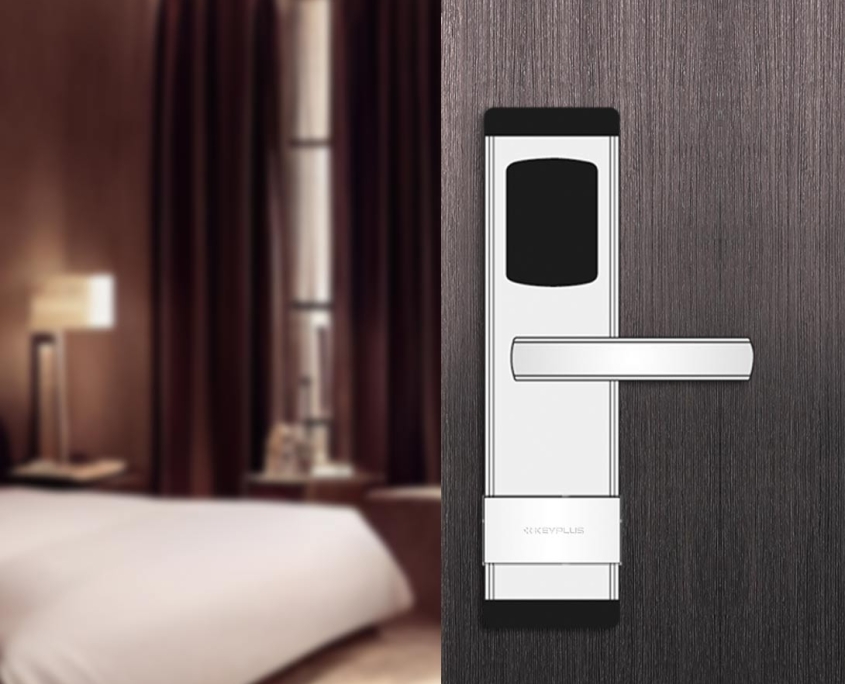
4. Advantages of Electronic Hotel Locks
 Enhanced Security
Enhanced Security
- Traditional keys can be copied; electronic keys are unique and expire after checkout.
- Lost keycards can be instantly deactivated.
 Better Hotel Management
Better Hotel Management
- Staff can track who enters rooms and when.
- No need to rekey locks after each guest.
 Guest Convenience
Guest Convenience
- No more fumbling with metal keys.
- Mobile keys allow contactless check-in.
5. Potential Drawbacks
 Battery Dependence
Battery Dependence
- If batteries die, the lock may malfunction (though most have emergency overrides).
 Technical Glitches
Technical Glitches
- RFID interference or software bugs can sometimes cause issues.
 Cost
Cost
- More expensive to install than traditional locks.
6. What Happens If the Lock Fails?
Even the best systems can have hiccups. Here’s what to do if your electronic lock stops working:
- Try a Different Keycard – Sometimes, the card gets demagnetized.
- Check for Low Battery Warnings – Some locks beep or flash a warning light.
- Contact the Front Desk – They can reset the lock or provide manual access.
7. The Future of Hotel Door Locks
Technology keeps evolving, and so do hotel locks. Future trends include:
- Voice-Activated Locks (“Hey Alexa, unlock my door!”)
- AI-Powered Security (Facial recognition + behavior analysis)
- Self-Charging Locks (Using motion or solar energy)
Final Thoughts
Electronic hotel locks offer a seamless, secure, and modern alternative to traditional keys. Whether it’s a simple magnetic stripe card or a high-tech mobile key, these systems make check-ins smoother and rooms safer.
Next time you hear that satisfying click when your door unlocks, you’ll know exactly what’s happening behind the scenes!
What’s your preference—keycard, mobile key, or fingerprint? Let us know in the comments!

